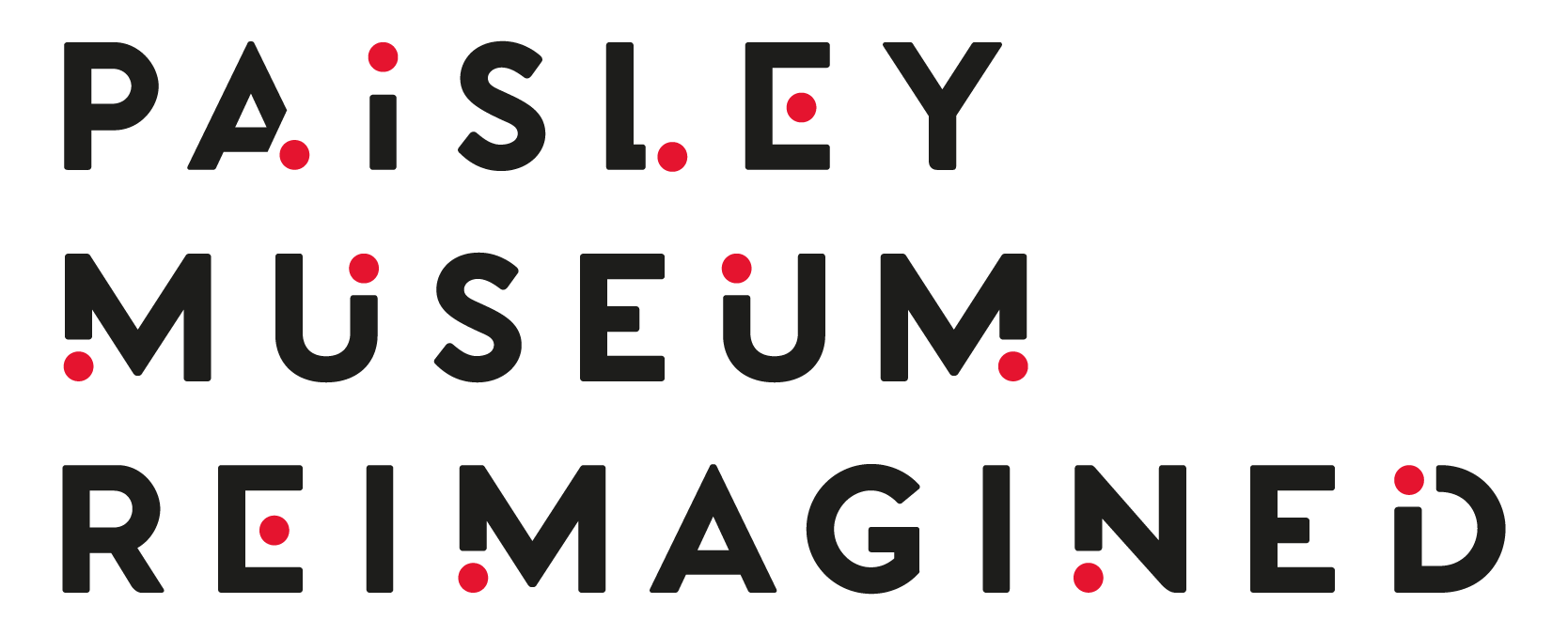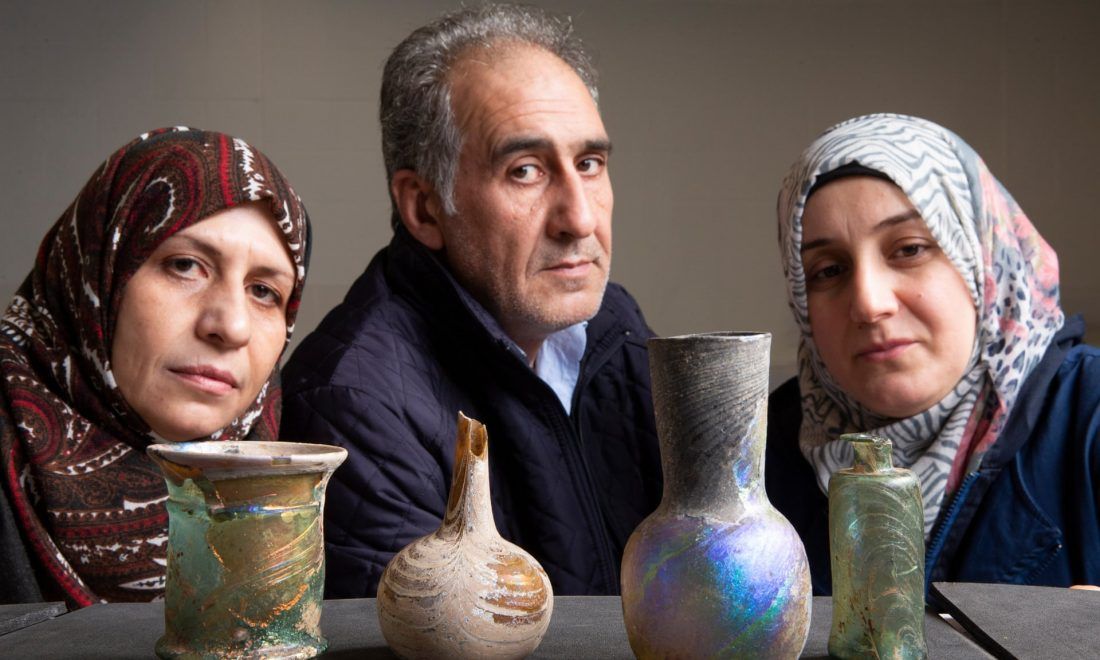Syrian ESOL group help Paisley Museum display Syrian glass collection for the first time
November marked five years since the first group of Syrians arrived in Renfrewshire through the UK Government’s Vulnerable Persons Resettlement Scheme (VPRS). Since then, Renfrewshire has welcomed 162 individuals and 28 babies have been born here during that time.
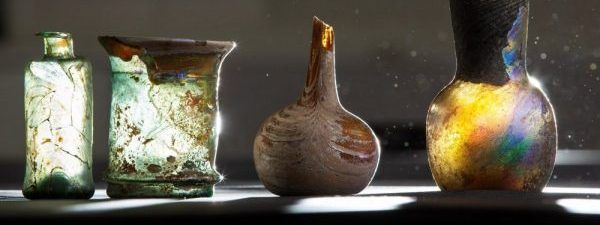
To mark the anniversary, Paisley Museum released details of their Syrian glass collection dating back over 2,000 years which has never been displayed before. The 30-piece collection, dating back to Roman times, was bequeathed to Paisley Museum in 1948 by Elizabeth Spiers Paterson, the daughter of thread manufacturers, and is believed to have been acquired from antiquities dealers in Syria, known as the birthplace of glass-making.
Despite being held in our collections for over 70 years, the potential significance of the glassware was only recently realised by our Research Assistant of World Cultures, Joel Fagan whilst moving objects into The Secret Collection, in preparation for the museum’s £42m redevelopment. Joel said, ‘It’s incredible they have survived. We could have just thrown them in a case, but we didn’t feel that was acceptable. We wanted to bring the Museum to the Syrian community’.
The partnership between the Syrian ESOL group and the project team was established through their participation in English language classes delivered by Renfrewshire Council. Following sessions with the museum team, including a trip to a glassblowing workshop and a visit to The Secret Collection, the group chose 13 pieces of glassware from the 2nd and 3rd century AD including a Syrian glass beaker from Damascus, a brown bulbous bottle decorated in fluorescent and gold, and a purple beaker with a dark feathered design for display. Future sessions will involve creating interpretation for the display in both Arabic and English, which will incorporate some of the group’s personal stories.
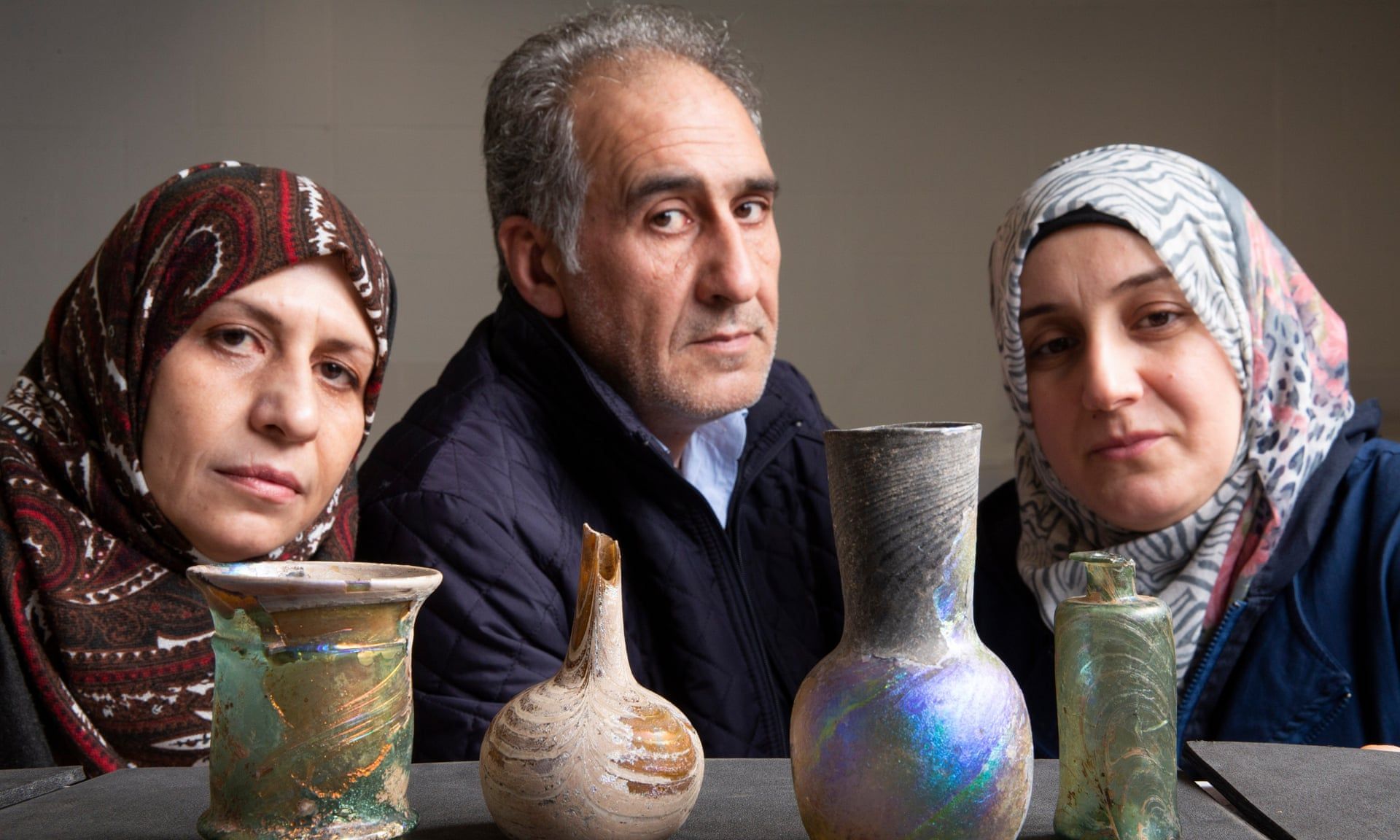
Family members Jamal Horani and Khadeja Alhorani arrived in Paisley from Syria in 2018 and are part of the ESOL group who have been working with the team. Jamal said, ‘We were so happy and surprised to find these pieces made by our ancestors were here in Scotland. We used to collect these types of glass items at home back in Syria and it made me feel quite emotional and proud to find them here’.
Khadeja, added, ‘We want people to know that we have a great civilisation and that our glass making is known very well across the world. It’s not just the conflict – there are many other good things about our country’.
Councillor Lisa-Marie Hughes, chair of Renfrewshire Leisure said, ‘These magnificent items provide a snapshot of the rich cultural heritage Syrians had to leave behind when they fled from the conflict in Syria. Like everyone who lives and works in our town, the Syrian families have become an important part of our community, and we are delighted that they are taking an active role in the redevelopment of Paisley Museum’.
The Guardian published an article on this work on 16 November 2020. To read the article please follow this link.
Latest News & Stories
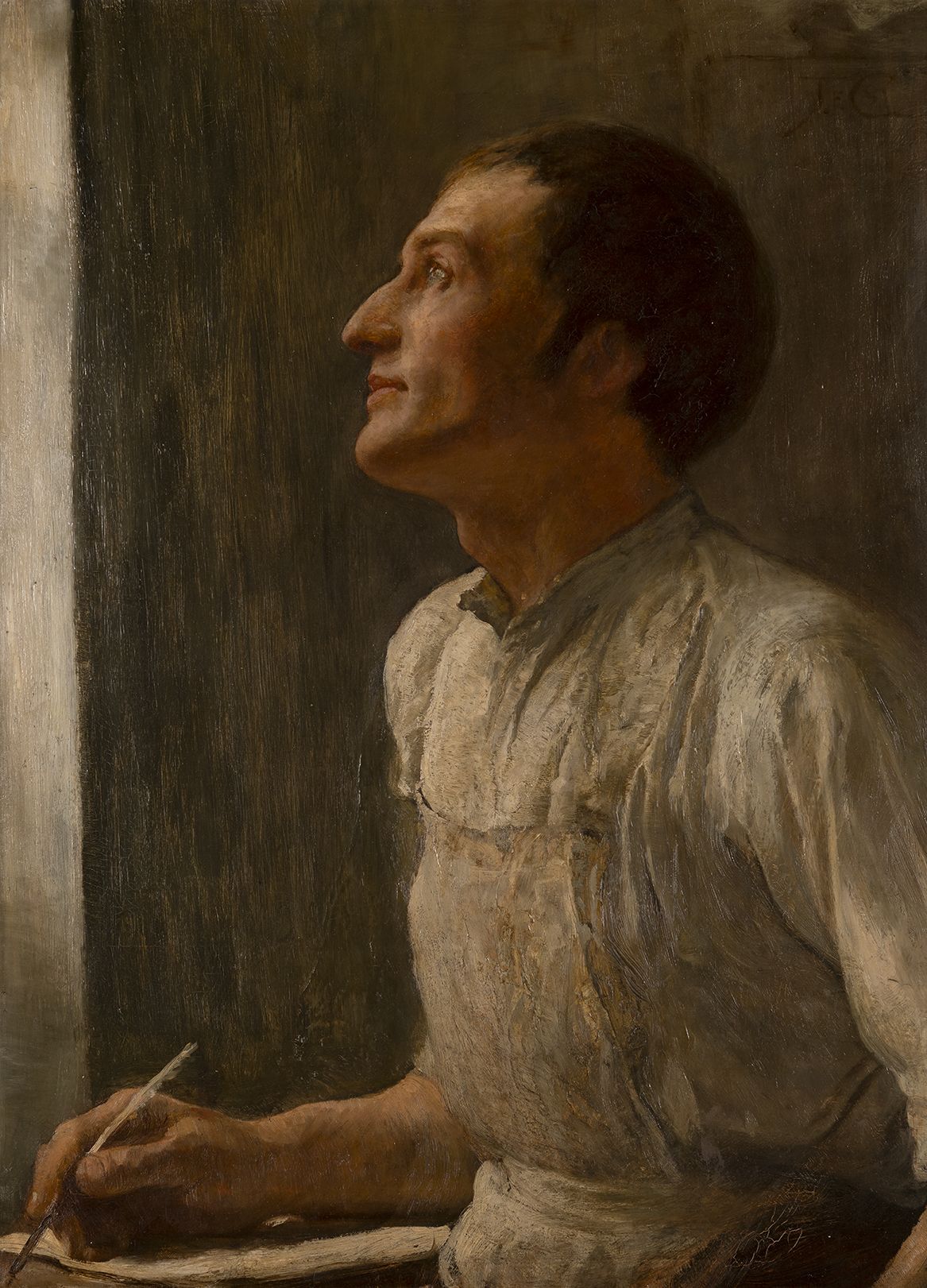
News
12 / 06 / 24Life and death of Scotland’s ‘forgotten bard’ Robert Tannahill re-examined on 250th anniversary of his birth
Paisley’s ‘weaver poet’ lost his life in tragic circumstances, but his legacy still resonates to this day. This month marks the 250th anniversary of his birth on 3rd June 1774, and the team behind the £45 million refurbishment of Paisley Museum has announced plans to showcase Tannahill’s incredible contribution to Scottish culture and re-visit the circumstances around his death.
Read More
News
25 / 05 / 24Social History Collection Conservation
Funding from The Pilgrim Trust has meant that we have been able to collaborate with the People’s History Museum to fully conserve artefacts from the Social History Collection.
Read More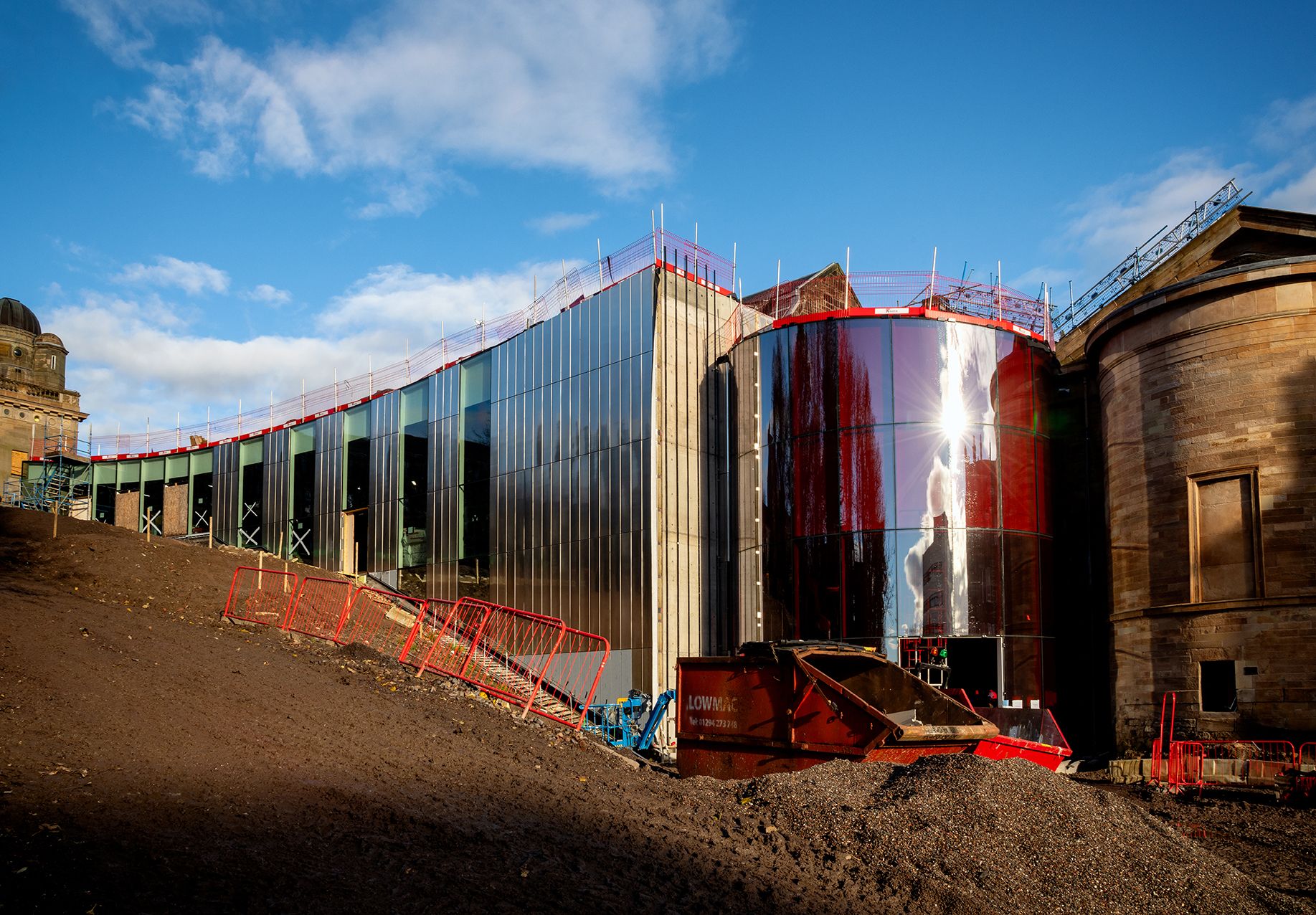
News
14 / 05 / 24Scotland’s biggest cultural heritage project welcomes corporate partners on board
Paisley Museum welcomes the University of the West of Scotland, The Malcolm Group and Scottish Leather Group as corporate partners
Read More